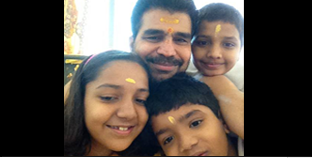Sloka 26Atra apashyat sthitān Pārthaḥpitṝn atha pitāmahānācāryān mātulān bhrātṝnputrān pautrān sakhīns tathā Sloka 27Tān samīkṣya sa kaunteyaḥsarvān bandhūn avasthitānkṛpayā parayāviṣṭoviṣīdann idam abravīt When Arjuna When Arjuna saw Bhishma, Droṇa, and
READ MORE
The Rise and Fall of a Gambler in SixSixSix Again and Again
As I sit here, reflecting on my journey as a gambler, I am reminded of the infamous number 666 – the mark of the beast, a symbol of evil, and a recurring theme in many cultures. It’s a fitting title for this story, as it represents both the highs and lows that I’ve experienced throughout my years as a gambler.
The Allure of SixSixSix
For me, it https://sixsixsixsite.com all began with a trip to Las Vegas. The bright lights, the endless energy, and the promise of easy money had me hooked from the start. I was young, reckless, and eager to make a name for myself in the world of high-stakes betting. My friends and I would spend hours pouring over slot machine strategies, trying to decipher the secrets behind Lady Luck’s favoritism towards certain machines.
We’d play for hours on end, fueled by cheap cocktails and the promise of a big win. And occasionally, we’d hit the jackpot – not always in monetary terms, but in the rush of adrenaline that came with it. The thrill of spinning the reels, watching as the symbols aligned in our favor, and screaming triumphantly as we collected our winnings was exhilarating.
But it wasn’t just about the money; it was about the experience. We’d dress up, hit the bars, and pretend to be high-rollers for a night. It was a fantasy world where anything was possible, and the rules of reality didn’t apply.
The First Fall
As time went on, however, my losses began to mount. I’d start with a small bankroll, convinced that this would be the time I finally broke through and hit it big. But as the days turned into weeks, and the weeks into months, my stack of chips dwindled. I was up one day, down the next, and before long, I found myself in a vicious cycle of chasing losses.
It wasn’t just about the money; it was about the emotional toll that came with each loss. I’d become irritable, withdrawn, and paranoid, convinced that everyone else was outsmarting me while I struggled to keep up. My relationships began to suffer, as my obsession with winning took over my life. It was a lonely existence, and one that I knew couldn’t continue.
The Rise Again
But like a phoenix from the ashes, I’d rise again – each time more determined than before to conquer the tables. This time, however, I approached things differently. I began studying psychology and sociology, trying to understand why people gambled in the first place. What was it about the rush of adrenaline that made us return again and again?
I discovered the concept of the "variable reward schedule," where our brains are wired to crave the uncertainty of winning – rather than the actual win itself. It explained why we’d spend hours at a slot machine, waiting for that elusive big hit, rather than simply taking a more calculated approach.
Armed with this knowledge, I developed a new strategy. I began by setting realistic goals and bankrolls, knowing when to walk away before my losses became insurmountable. I practiced mindfulness, recognizing the emotional highs and lows of each session. And most importantly, I learned to separate myself from the outcome – not allowing wins or losses to dictate my self-worth.
The Allure Revisited
As I refined my approach, I noticed something peculiar. The allure of SixSixSix had changed for me. Instead of being driven by a desire to win big, I began to appreciate the experience itself. The thrill of competition, the camaraderie with fellow gamblers, and the satisfaction of mastering new strategies all took center stage.
I started playing at different venues – from online casinos to high-end poker rooms. Each had its unique charm and challenges, but they all shared one thing in common: a sense of possibility. I’d sit down at a table, not knowing what lay ahead, but excited for the journey.
The Second Fall
But like a rollercoaster with no safety net, my fortunes eventually took another dip. I became overconfident, convinced that my new approach made me invincible. I started taking on bigger and bigger bets, convinced that I could outsmart the system once more.
It was a trap I’d fallen into before – chasing losses rather than enjoying the ride. My relationships began to suffer once again, as my obsession with winning took over. I became withdrawn, isolated, and lost in a world of my own making.
The Rebirth
As I hit rock bottom – for what felt like the umpteenth time – something inside me snapped. It was a moment of clarity that came from recognizing the destructive pattern I’d created. I realized that SixSixSix wasn’t just a number; it was a metaphor for the cyclical nature of my addiction.
I began to rebuild, piece by piece. This time, however, I approached things differently – not as a gambler, but as a student of human psychology and behavior. I delved deeper into the science behind addiction, recognizing that it’s not just about winning or losing, but about the emotional highs and lows that come with each experience.
The SixSixSix Legacy
Today, as I look back on my journey, I see the number 666 in a new light. It’s no longer just a symbol of chaos and uncertainty; it represents resilience, determination, and a willingness to learn from our mistakes. My time as a gambler has taught me valuable lessons about human behavior, psychology, and the nature of addiction.
While I still enjoy playing games and participating in social events centered around SixSixSix, my perspective has shifted dramatically. I no longer chase wins or losses; instead, I appreciate the experience for what it is – a chance to connect with others, challenge myself, and grow as an individual.
In the end, it’s not about hitting that elusive jackpot or breaking even; it’s about finding balance in our lives and embracing the lessons we learn along the way. As I reflect on my journey, I realize that SixSixSix has become a reminder of both the highs and lows – and the promise of redemption and rebirth that lies within each cycle.
No Schedules for this section.
No Schedules for this section.



